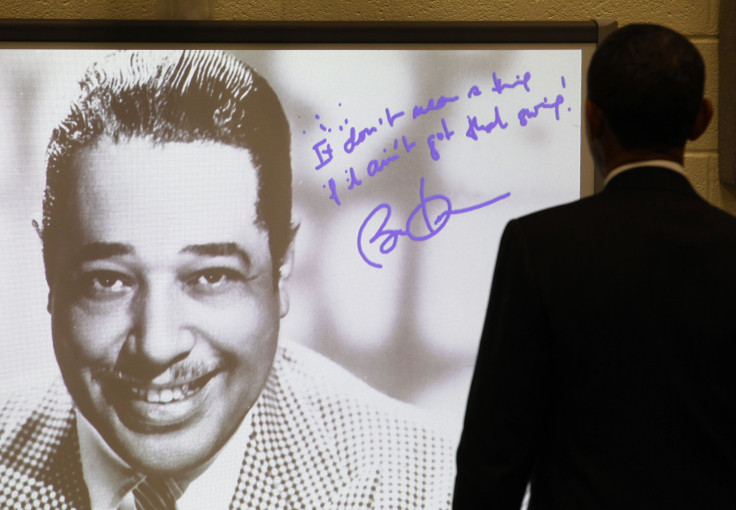Duke Ellington Songs: Listen To 'Take The A Train,' Other Jazz Hits On The Anniversary Of Legend's Death

Duke Ellington, one of America's greatest composers, is sure to be honored on the anniversary of his death Sunday. The famous jazz composer, conductor and pianist died of lung cancer and pneumonia May 24, 1974, after a hugely successful 50-year career in music. Even now, decades later, the world continues to honor Ellington's life and legacy.
He was born in Washington April 29, 1899, as Edward Kennedy Ellington -- he'd get the nickname "Duke" later from a friend who complimented on his manners. By the time Ellington turned 7, he was playing the piano, and, when he was 15, he wrote his first song, "Soda Fountain Rag," according to Biography.com.
As he grew up, Ellington became increasingly involved in the music scene. He moved to New York in 1923, when he joined a band, according to the Smithsonian Institution. Ellington found a mentor in Fats Waller, a pianist in Harlem, and released his first recording in 1924. He and his 11-piece group played at the Cotton Club through 1932.
Ellington subsequently skyrocketed in popularity. As noted by the Smithsonian, he entered his "golden age," composing some of his most famous works, such as "Concerto for Cootie" and "In a Sentimental Mood," and finding a collaborator in Billy "Swee' Pea" Strayhorn in 1939. Ellington and his band toured Europe and the U.S. for the next few decades, frequently taking on themes of race relations in his work, most stunningly exemplified by his symphony "Black, Brown and Beige."
Ellington was awarded the Presidential Medal of Freedom in 1969, according to his official website. Overall, he won 13 Grammy Awards -- as well as a posthumous Pulitzer Prize.
"Ellington is one of the pivotal figures in jazz," said Phil Haynes of Bucknell University in Lewisburg, Pennsylvania. "Take him and Louis Armstrong, Charlie Parker, John Coltrane and Ornette Coleman, and those people are still changing the music today. His music, like all the great masters, it lives."
Here are five of the legend's most famous compositions:
"Take the 'A' Train"
"It Don't Mean a Thing (If It Ain't Got That Swing)"
"Sophisticated Lady"
"Mood Indigo"
"In a Sentimental Mood"
© Copyright IBTimes 2024. All rights reserved.












